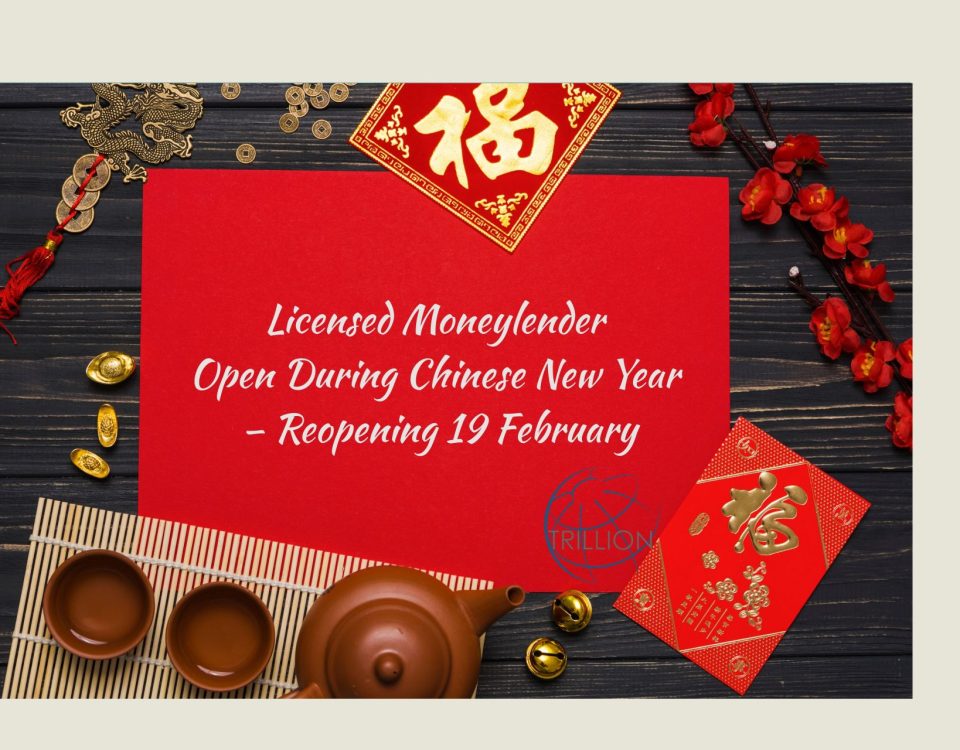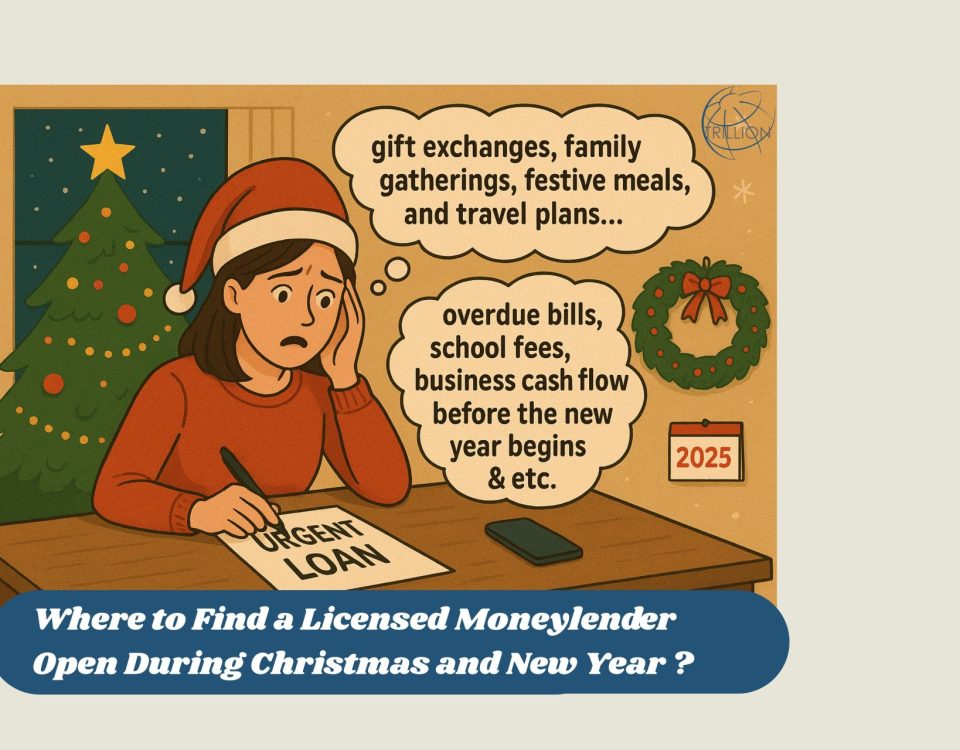Introduction
When you need a loan in Singapore, two common options are banks and licensed moneylenders. Both offer legitimate lending services, but they cater to different financial needs and situations. Understanding the key differences can help you make an informed decision that aligns with your financial goals. This guide compares loan options from banks and licensed moneylenders, covering factors such as eligibility, interest rates, loan amounts, and processing times.
1. Loan Eligibility Requirements
Banks:
Banks in Singapore have strict eligibility requirements for loan applications. Borrowers must meet certain criteria, including:
A minimum annual income (e.g., $30,000 or more for personal loans).
A strong credit score.
Stable employment or business income.
Residency status (Singapore citizens, permanent residents, or certain foreign work passes).
Licensed Moneylenders:
Licensed moneylenders are more flexible with their eligibility criteria, making loans accessible to borrowers who may not qualify for bank loans. Requirements often include:
Proof of income (e.g., payslips or CPF contributions).
Basic identity verification (NRIC for locals, work permit for foreigners).
Fewer restrictions on credit history.
If you have a lower income or less-than-perfect credit, licensed moneylenders may be a more viable option.
2. Interest Rates and Fees
Banks:
Banks generally offer lower interest rates for loans, ranging from 3% to 7% per annum for personal loans. However, lower interest rates often come with stricter eligibility requirements and longer approval processes. Banks may also charge processing fees, which can be a percentage of the loan amount.
Licensed Moneylenders:
Licensed moneylenders are legally capped by the Ministry of Law in Singapore to charge interest rates of no more than 4% per month. They are also allowed to charge certain fees, such as late payment fees, which are regulated to prevent excessive charges.
While moneylenders may have higher interest rates compared to banks, they offer faster processing and cater to those who may need urgent cash or have limited borrowing options.
3. Loan Amounts
Banks:
Banks typically offer larger loan amounts, especially for borrowers with higher incomes and strong credit scores. For personal loans, banks may lend up to 10 times your monthly income, depending on your financial profile.
Licensed Moneylenders:
Licensed moneylenders offer smaller loan amounts compared to banks. The loan amount is usually capped based on your monthly income:
Borrowers earning less than $20,000 annually: Up to $3,000.
Borrowers earning $20,000 or more annually: Up to 6 times your monthly income.
If you need a large loan, banks may be the better option. However, for smaller amounts or immediate needs, licensed moneylenders are more accessible.
4. Loan Approval and Processing Time
Banks:
Bank loan approvals may take several days to a few weeks, as they involve stringent credit assessments and documentation reviews. For borrowers with urgent needs, this waiting period can be a disadvantage.
Licensed Moneylenders:
Licensed moneylenders offer quick approvals, with most loans being processed on the spot. This makes them an excellent option for borrowers who need immediate access to funds.
If time is of the essence, a licensed moneylender can provide faster solutions compared to banks.
5. Credit Score Requirements
Banks:
Banks place significant emphasis on your credit score when evaluating loan applications. A good or excellent credit score is often required for approval. If you have a poor credit history, it’s unlikely your loan application will be approved.
Licensed Moneylenders:
Licensed moneylenders are more lenient when it comes to credit scores. While they may still check your financial background, they are often willing to approve loans for borrowers with poor or no credit history, as long as the borrower meets other eligibility criteria.
If you’re rebuilding your credit or lack a strong financial record, licensed moneylenders are a more viable choice.
6. Regulatory Protections
Banks:
Banks in Singapore are regulated by the Monetary Authority of Singapore (MAS) and must adhere to strict lending guidelines. Borrowers can expect transparency and fair treatment when borrowing from a bank.
Licensed Moneylenders:
Licensed moneylenders are governed by the Ministry of Law under the Moneylenders Act. Borrowers are protected by strict regulations that ensure fair interest rates, transparent fees, and ethical lending practices. It’s important to verify that the moneylender is licensed via the official Registry of Moneylenders website.
Never borrow from unlicensed moneylenders, as they operate illegally and may use unethical practices.
7. When to Choose a Bank Loan
You have a strong credit score and stable income.
You need a large loan amount.
You can wait for the longer approval process.
You prefer lower interest rates.
8. When to Choose a Licensed Moneylender
You need urgent cash or fast loan approval.
You have a low income or poor credit history.
You require a smaller loan amount.
You need a flexible repayment plan.
Conclusion:
Both banks and licensed moneylenders play important roles in Singapore’s lending landscape. The choice between the two depends on your financial situation, borrowing needs, and urgency. Banks offer lower interest rates and larger loans for borrowers who meet their strict requirements. Licensed moneylenders, on the other hand, provide quick access to cash, flexible terms, and loans for borrowers with diverse financial profiles.
At Trillion Credit, we are committed to providing transparent, flexible, and ethical moneylending services to meet your needs. If you’re considering a loan, contact us today to discuss your options and find a solution tailored to your financial goals.
Ready to Take Control of Your Finances? Contact Us Today!
Contact us today 65090111 or apply online https://trillioncredit.com.sg/apply-for-loan/ to get started on your financial journey!






